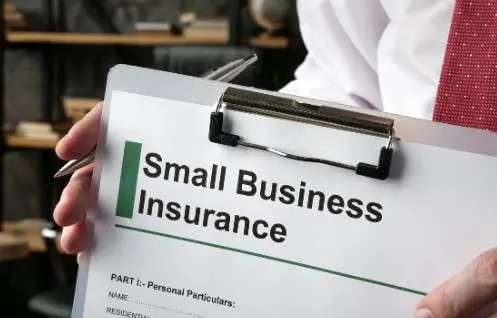Business Insurance Essentials for Small Entrepreneurs
Embarking on the entrepreneurial journey requires courage, vision, and a keen sense of opportunity.
Amid the excitement of bringing a business idea to life, small entrepreneurs often find themselves immersed in the day-to-day operations, strategic planning, and customer engagement. However, one critical aspect that should be considered is business insurance.
In this guide, we will explore the fundamental business insurance essentials that small entrepreneurs need to consider, emphasizing their significance in ensuring the long-term success and sustainability of their ventures.
1. General Liability Insurance: Foundation of Protection

At the core of any sound business insurance strategy is general liability insurance. This foundational coverage is designed to shield entrepreneurs from the financial fallout of third-party claims.
Whether operating a physical storefront or an online business, the risks of bodily injury, property damage, or personal injury are omnipresent.
General liability insurance steps in to cover legal fees, medical expenses, and settlements, ensuring that unexpected incidents do not become crippling financial liabilities.
Small entrepreneurs can thus focus on growth without the constant worry of potential legal and financial setbacks.
2. Property Insurance: Safeguarding Tangible Assets
Physical assets such as buildings, equipment, inventory, and signage are the backbone of any business.
Property insurance plays a crucial role in safeguarding these assets against unforeseen risks such as fire, theft, vandalism, or natural disasters.
For small entrepreneurs who may need more resources, the financial impact of losing essential equipment or inventory could be devastating.
Property insurance provides a safety net, enabling entrepreneurs to recover and rebuild without bearing the full brunt of the associated costs.
3. Business Interruption Insurance: Mitigating Operational Downtime

Unexpected events, ranging from natural disasters to equipment failures, can disrupt business operations, leading to significant revenue loss.
Business interruption insurance becomes an essential component in such scenarios. This coverage helps small entrepreneurs mitigate the financial impact of downtime by covering ongoing expenses like rent, utilities, and employee salaries.
With business interruption insurance in place, entrepreneurs can navigate challenges more confidently, knowing that they have a financial buffer to weather temporary setbacks.
4. Professional Liability Insurance: Protecting Against Professional Missteps
For service-based businesses, professional liability insurance, also known as errors and omissions (E&O) insurance, is paramount. This coverage protects entrepreneurs from claims of negligence, errors, or omissions in the provision of professional services.
Consultants, freelancers, and professionals offering advice should consider this type of insurance, as it covers legal defence costs and settlements if a client alleges financial harm due to professional actions.
Professional liability insurance not only provides financial protection but also safeguards the reputation and credibility of the business.
5. Workers’ Compensation Insurance: Prioritizing Employee Well-being

If a small business has employees, workers’ compensation insurance is not just a legal requirement in many jurisdictions; it’s a moral and practical necessity.
This coverage provides financial support to employees who suffer work-related injuries or illnesses. Beyond compliance, workers’ compensation insurance fosters a positive work environment, demonstrating a commitment to employee well-being.
This, in turn, can enhance employee loyalty and contribute to a healthier, more productive workplace.
6. Commercial Auto Insurance: Protecting Business Vehicles
For businesses that rely on vehicles for operations, commercial auto insurance is essential. Personal auto insurance typically does not cover accidents that occur while using a vehicle for business purposes.
Commercial auto insurance ensures that both the business vehicles and the individuals driving them are adequately covered in case of accidents, theft, or vandalism.
This type of coverage minimizes potential financial setbacks and legal complications arising from incidents involving business-owned vehicles.
Conclusion
In the ever-evolving landscape of entrepreneurship, small business owners must be proactive in managing risks to ensure the sustained success of their ventures.
Business insurance is not just a financial safety net; it is a strategic investment in the resilience and longevity of the business.
By understanding and prioritizing the essential types of business insurance, small entrepreneurs can navigate challenges with greater confidence, knowing they have a solid foundation of protection in place.
As the business landscape continues to evolve, embracing a comprehensive business insurance strategy will remain a fundamental aspect of responsible and forward-thinking entrepreneurship.
